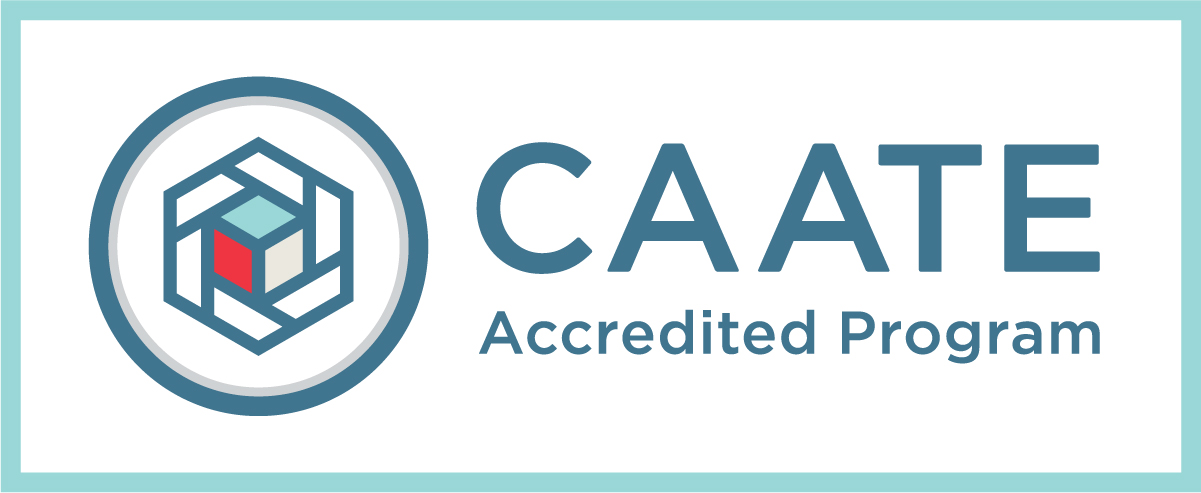Master of Science in Athletic Training
The Master of Science in Athletic Training (MSAT) is an entry-level professional degree program for students who have already earned a bachelor’s degree, typically in a related field.
The MSAT degree program allows students to apply knowledge and expertise to improve healthcare for the physically active and serve as healthcare leaders in their communities. The program includes a combination of coursework and clinical experiences to prepare students to sit for the Board of Certification (BOC) exam.
The MSAT is a two-year program, beginning in the summer semester, that prepares students for a career as an athletic trainer. Students will commence clinical experiences in the fall of their admission year. Students will gain approximately 300 clinical experiential hours per semester in clinical sites located throughout San Antonio and the surrounding area. Along with traditional athletic training clinical opportunities, this program offers unique opportunities in the military setting, with up to 75 percent of clinical experiences conducted with the armed forces. In the last semester of the program, students will have the unique opportunity to engage in an immersive clinical experience of the student’s intended practice setting, which may lead to settings located across the United States or internationally.
In cooperation with physicians and other healthcare professionals, the athletic trainer functions as a member of the athletic healthcare team in secondary schools, colleges and universities, professional sports programs, sports medicine clinics and other athletic healthcare settings.
The MSAT program launched in Summer 2020. The original undergraduate program was established in 2001 to meet the guidelines and standards established by the Commission on Accreditation of Athletic Training Education, the National Athletic Trainers Association Education Council, and the Texas Advisory Board of Athletic Training.
"I found a family within the UIW Athletic Training program. The faculty pushed me to be the best version of myself personally and the best Athletic Trainer I could be. They were by my side every step of the way from the moment I joined the program and are still supportive of me in the professional world. I wouldn’t trade my education here with any other. I am proud to be a graduate of the UIW Athletic Training program, and I am proud to be a Cardinal!"
-Rae Martin MSE, LAT, ATC
CAATE Accredited Program
In May 2005, the Athletic Training Education Program was granted initial accreditation through the Commission on Accreditation of Allied Health Education Programs (CAAHEP) through the Joint Review Committee on Educational Programs in Athletic Training (JRC-AT) recommendation. CAAHEP is the largest external programmatic accreditor for the health sciences fields.
In July 2006, the JRC-AT broke away from CAAHEP to form the Commission on Accreditation of Athletic Training Education (CAATE). This is an independent accreditation agency dedicated to the advancement of the education of athletic trainers.
The program is re-accredited from CAATE until the 2029-2030 academic year.
CAATE Program Information and Outcomes

Financial Assistance
Office of Financial Assistance
Students attending the University of the Incarnate Word School of Rehabilitation Sciences are encouraged to visit the Office of Financial Assistance webpage to find various types of financial assistance. This site also contains information about submitting the Free Application for Federal Student Aid (FAFSA).
Scholarships
A limited number of scholarships funded through the School of Rehabilitation Sciences are available on an annual basis to support matriculated students. Interested applicants must meet the scholarship deadline to be considered.
Projected costs for 2022-2023:
Tuition
- 2022-2023 Tuition Rates:
- Graduate Tuition 2022-2023: $1,050 per credit hour
- Graduate Tuition with Military Tuition Assistance (TA) authorization: $250 per credit hour
- MSAT program is a total of 52 credit hours.
Fees
- Annual immunization cost: Varies per insurance coverage, but estimated costs are:
- Flu shot $35
- COVID (if available) $35
- Travel costs associated with clinical travel (to and from clinical site, i.e., gas)
Estimated Total Annual Fees: $250 + MSAT course fees
Additional costs in final semester
- NATA Board Examination: $365
- Texas Licensure Juris Prudence Exam: (semester before or of graduation) $35
- Immersive Clinical (travel/living expenses), depending on location
Demand for athletic trainers is expected to increase as people become more aware of the effects of sports-related injuries, and as the middle-aged and older population remains active.
Athletic trainers need at least a bachelor’s degree from an accredited college or university. Master’s degree programs are also common, and may be preferred by some employers.
Source: U.S. Bureau of Labor Statistics
Military Committed to Hiring Athletic Trainers
 The U.S. military has a growing need to hire athletic trainers to boost readiness of service members in our growing armed forces. Most branches of the Department of Defense have hired athletic trainers to provide interprofessional services in performance optimization, injury prevention, and accelerated return to duty. The outcomes demonstrated in these collaborative patient care teams have led to hundreds of new positions nationwide. UIW is as at the forefront of demonstrating professional impact and preparing students to excel in unique situations.
The U.S. military has a growing need to hire athletic trainers to boost readiness of service members in our growing armed forces. Most branches of the Department of Defense have hired athletic trainers to provide interprofessional services in performance optimization, injury prevention, and accelerated return to duty. The outcomes demonstrated in these collaborative patient care teams have led to hundreds of new positions nationwide. UIW is as at the forefront of demonstrating professional impact and preparing students to excel in unique situations.
Sources:
- Patrick Smith and Erin Stone. 2020. Holistic Health and Fitness (H2F) Developing and Maintaining the Whole Soldier.
- Gary Sheftick. 2019. Army May Use Nutritionists, Sports Trainers to Boost Readiness.
- Sgt. Annika Moody. 2020. Athletic Trainers are Enablers of Marine Corps Readiness.
- Spectrum Healthcare Resources. Athletic Trainers to Assist Marine Corps in New Initiative.

